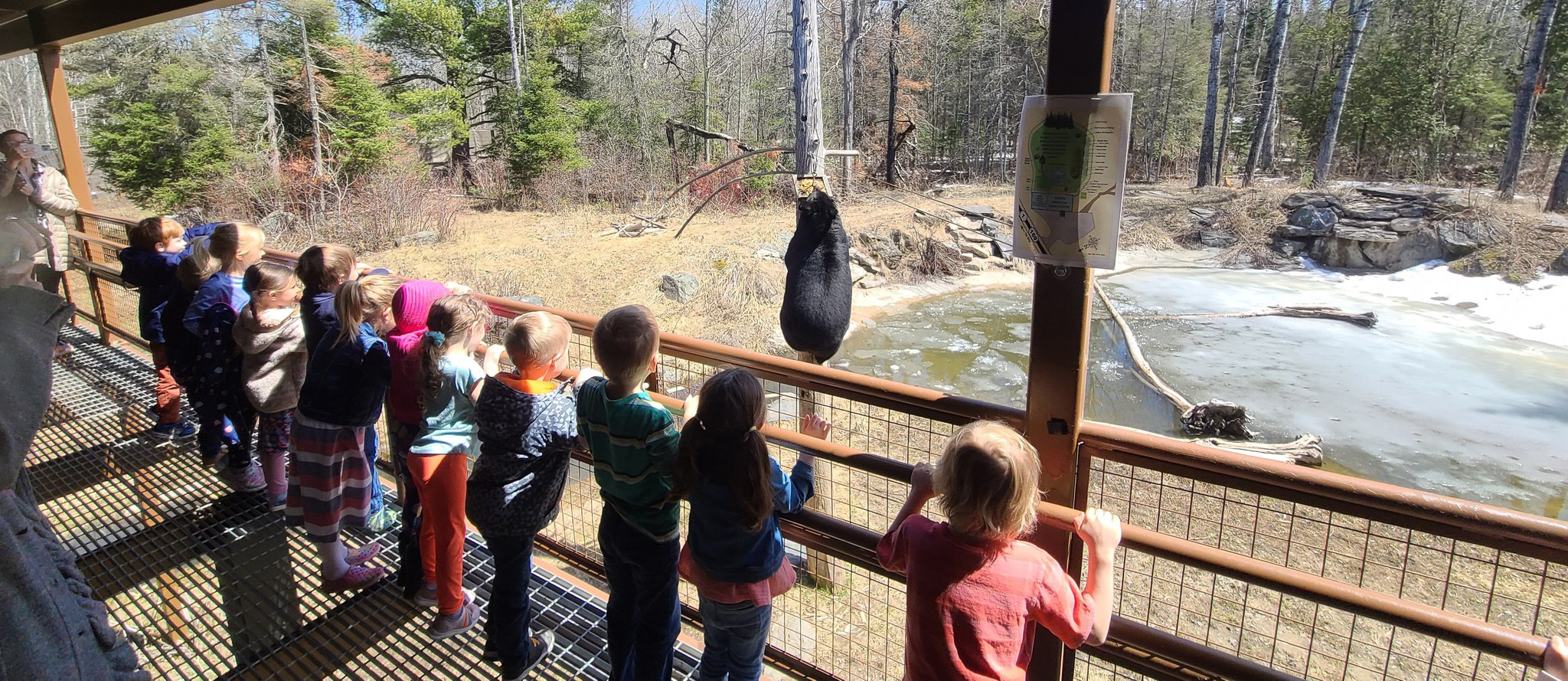Senses and Abilities
Vision: Bears see in color and have sharp vision close-up. Their distance vision (over two hundred yards) has not been tested. Hearing: Hearing is the black bear’s first line of…
Read More

Vision: Bears see in color and have sharp vision close-up. Their distance vision (over two hundred yards) has not been tested. Hearing: Hearing is the black bear’s first line of…
Read More
Daily Activity Period: Most bears become active a half-hour before sunrise, take a nap or two during the day, and bed down for the night an hour or two after…
Read More
The most accurate way to tell the age of a bear is to count the rings in a cross section of a tooth root using a microscope. This cross-section is…
Read More
Saggital crest: This protrusion is for attachment of chewing muscles. Animals with a large saggital crest have a powerful bite. The saggital crest is much bigger on male black bears…
Read More
General: Black bears are 4 to 7 feet from nose to tail, 2 to 3 feet high at the shoulders, and have small eyes, rounded ears, a long snout, a…
Read More

Ursus americanus Kingdom: Animal Phylum: Chordata Class: Mammalia Subclass: Theria Infraclass: Eutheria Order: Carnivora Suborder: Fissipedia Family: Ursidae Subfamily: Ursinae (all living bears except giant panda and the spectacled bear)…
Read More
Black bears historically ranged over most of the forested regions of North America, including all Canadian provinces, Alaska, all states in the conterminous United States, and significant portions of northern…
Read More
January: The full moon in January is sometimes called the ‘bear moon’. Black bear cubs are generally born in January. The mother bear licks them clean, keeps them warm and…
Read More
Folklore: Perhaps no other animals have so excited the human imagination as bears. References to bears are found in ancient and modern literature, folk songs, legends, mythology, children stories, and…
Read MoreWe are a 501(c)(3) non-profit that relies entirely on the support of visitors, merchandise sales and people like you. We do not receive any state or federal funding.
Help support our mission.
Donate Now